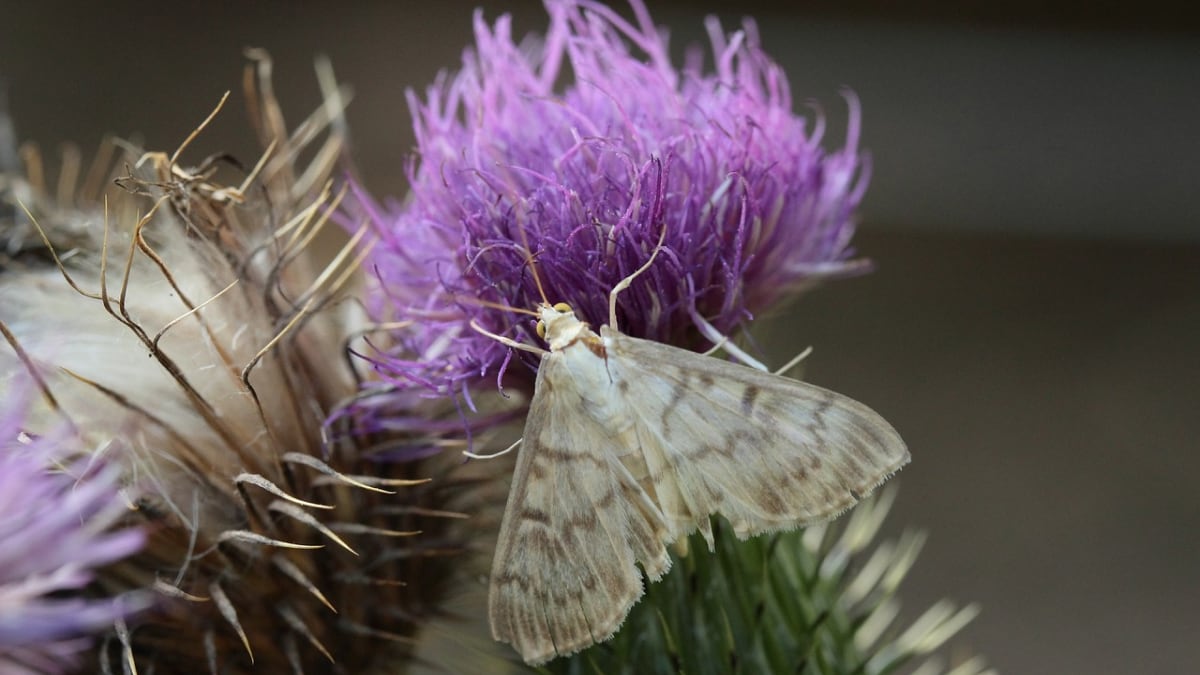Research published on November 14 via bioRxiv has indicated that ultrasonic sounds produced by drought-stressed plants may play a role in the egg-laying decisions of female moths. It has been suggested that these high-pitched noises, undetectable by humans, are evaluated by moths to avoid dehydrated plants when selecting suitable hosts for their caterpillars.
The study was led by Rya Seltzer, an entomologist from Tel Aviv University, whose team investigated whether the ultrasonic clicking sounds of stressed plants could influence the behavior of the Egyptian cotton leafworm moth (Spodoptera littoralis), as per a report By The New York Times. Experiments were conducted in controlled environments where moths were exposed to speakers emitting sounds mimicking those of dehydrated tomato plants. It was reported that in the absence of real plants, moths laid eggs closer to the speakers emitting these sounds.
Observations with Live Plants
In subsequent experiments, live tomato plants were introduced, with one side of the test arena containing a hydrated plant and the other a water-stressed plant. Moths were observed laying eggs more frequently on the healthier plants. A further setup involved placing hydrated plants on both sides while one side emitted artificial stress sounds. The moths were found to favor the silent plants over those accompanied by simulated stressed plant noises.
According to the researchers, this indicates that moths not only detect these ultrasonic signals but associate them with the physiological condition of the plants. It was further noted that moths raised entirely in laboratory conditions, with no prior exposure to plants, displayed this behaviour, highlighting its genetic foundation.
Implications for Pest Management
Biologist Björn Thorin Jonsson from the University of Graz told NYT that widespread and reliable acoustic cues could be utilized by insects to locate better resources. Fernando Montealegre-Zapata, a sensory biologist at the University of Lincoln, suggested that these findings could hold applications in agriculture. He questioned whether stress sounds could be employed to deter pests from laying eggs on healthy crops.
Rya Seltzer told the publication that this discovery may represent only the beginning of uncovering acoustic interactions between plants and insects. It was proposed that similar behaviors might be widespread among other insect species, with potential implications for ecological research and agricultural innovation.
For the latest tech news and reviews, follow Gadgets 360 on X, Facebook, WhatsApp, threads and Google NewsFor the latest videos on gadgets and tech, subscribe to our YouTube channelIf you want to know everything about top influencers, follow our in-house Who'sThat360 on Instagram and YouTube,

Parker Solar Probe to Break Records with Historic Sun Flyby on December 24
Microsoft Makes File Sharing Between iPhone and PCs Easier With New Link to Windows Feature



